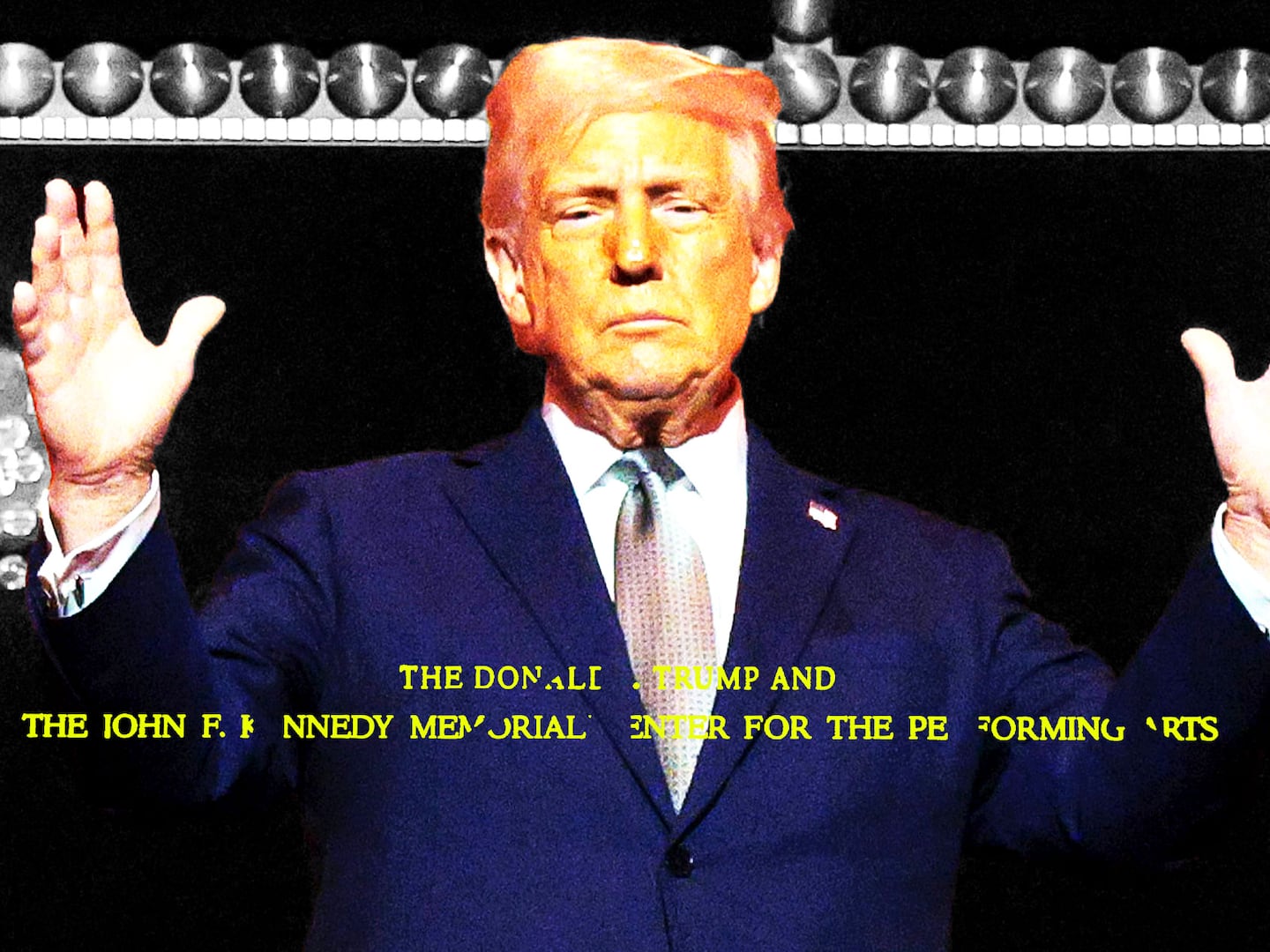
Josh Harris, begetter of Quiet and We Live In Public, two of the more in-your-face media/art phenomena of turn-of-21st-century New York, and a flame-out of the Dot Com crash, was sitting in a Greenwich Street production office, working an unlit cigar, eyes darting, plotting a yet more wildly ambitious re-entry into the world of artistic endeavor and incident. His latest project, titled Net Band Command, is about to open, and the public—as with his other famous projects—are the stars.
Alongside Harris sat Erick Schonfield, co-founder of TouchCast—“a TV studio in an iPad”—whose office this is, and who will be handling the tech for his latest project. Across a table set with a heap of books topped by The Human Face of Big Data, a psychic’s crystal ball, and hillocks of collectible game figures, two of Harris’s lieutenants, Jon Feed Buck and Ignacio Platas, faced him on a split screen. Further along the sofa, and tranquilly silent, sat Amy Li, whose Chinatown gallery is housing Net Band Command.
Harris grew up in Ventura, in Southern California, the son of a mostly absent CIA father. He was parented by television. In his 20s he moved to Manhattan and launched a pioneer internet market research and analysis operation, Jupiter Research.
In 1994, in his mid-30s, he started Pseudo.Com, a website for live audio and video webcasting. He lived in the Pseudo office, where his downstairs neighbors included Jeff Koons. Also he had acquired an alter ego, another self, Harris as a scarily face-painted clown he called “Luvvy.”
When Jupiter went public in 1998, Harris was worth something like $80 million. That same year saw the release of The Truman Show, in which Jim Carrey discovers his whole life is a TV show. It made a formative impression on Harris.
At the beginning of 1999 he leased two buildings on Lower Broadway. Leo Koenig started his first gallery in one and Harris equipped the other, a six-story building, with a shooting range, an auditorium, and a boxing ring run by a Golden Gloves pro, Dominick Monaco (I fought a bout with Monaco there).
This was to be real life as non-stop performance and everything in the place was wired down to the bathrooms (I found just one supposedly under-the-radar lavatory). Harris celebrated the Millennium by moving in a hundred people for Quiet, a 30-day event which became increasingly out there—substances and sex were not enjoyed bashfully—not to say overwrought, until the event was finally busted by Mayor Giuliani’s Emergency Management team early on New Year’s Day. Happy Millennium, everybody!
“By the way when they close you down, it closed the show,” Harris says. “I didn’t have to chuck anybody out. So I had a nice night. That might have been my finest hour, orchestrating the bust.”
He was busted but far from bust, and by February Pseudo had 10 channels. “What’s happening with us is we’re starting to realize we’re in the business of programming people’s lives,” Harris said at the time. He predicted that in a year Pseudo would have 25 channels. “I’m in a race to take CBS out of business,” he told 60 Minutes that month. “That’s my focus. That’s what my bankers are telling me to do. The race is on. We’re in the hunt.”
The dot com boom began deflating the following March. The crash that followed was devastating. In due course Pseudo declared bankruptcy. That November though, he used an existing Pseudo title, We Live In Public, for a new project, in which Harris and Tanya Corrin, cast as a virtual girlfriend, were to be seen non-stop on the web for a hundred days. Corrin buckled first, insisting that Harris sleep on a sofa, then moving out. After the implosion of the project, Harris relocated to a commercial apple orchard in upstate New York.
In 2008 Harris wrote a letter to The New York Times in which he described Pseudo as “a longform piece of conceptual art” and “a fake company.” The following year, Ondi Timoner, a Pasadena-based filmmaker whose documentaries had included Join Us, which dealt with the epidemic of religious cults in the U.S., and The Nature of The Beast, which looked at the prison system, won the Grand Jury prize at Sundance for the film We Live In Public, which was essentially the Josh Harris story. The Museum of Modern Art bought the movie. “They put me naked on the cover of the July 2010 calendar,” Harris says, blithely. So it had all been fun but ultimately pointless, right?
Wrong. The Big Brother TV show was birthed in 1999, Facebook in 2004, YouTube in 2005. Need I mention the NSA? There have been high-tech advances in facial recognition, and machines are now better at recognizing human moods and emotions than we are. We are living in a surveilled world, in an era saturated with our need for attention. Harris’ lunges into a dystopian future were predictive.
As for Harris’ latest project, Net Band Command is taking place at Amy Li Projects, which is the front room of Ms. Li’s father’s button business, a compact street-level space on Mott Street. On the wall are two large canvases, made up of multiple serial portraits of Luvvy, Harris’ alter ego.
But, as with Quiet, those attending the show will be the main art event. An “oather” will swear them in. The oath will be “I swear to do less evil than Google.” (And the oather? This writer.)
Harris will shoot short video clips of each pledge using a “Luvvy” canvas as a backdrop. These videoclips will be processed through the shared public-access wifi facility known as “the cloud.” The videos will be edited into mini-TV shows. “We expect we will have produced 50-plus videos by the end of the night,” says Harris. The participants will be then required to post their videos on social media.
The thinking behind this? “Recruitment,” Harris says. “This will be the nucleus of Net Band Command.”
Net Band Command? “This is the cyber-army whose main mission is to build a human cage ahead of its time. My thing is to build a human chicken factory as an installation.” He foresees its thousand inhabitants as communicating with people in the outside world.
He originally wanted to construct the Net Band Command location at London’s Tate Modern. But he has been talking to New York’s Clocktower Gallery and is now looking for a venue someplace in New York state.
Everything in the cage will be programmed from moment to moment. “I know how to do that. That’s my thing,” Harris says. “It’s basically creating a hive. When somebody walks in on Day One they are one person. When they walk out 30 days later they are hive people. Their minds will have been fractured.”
Like minds were fractured during Quiet?
“I had a nervous breakdown,” says Harris. “I had a nervous breakdown because I wasn’t prepared.”
So what does he expect in the wake of Net Band Command?
“Well, these guys at Google are saying ‘Fuck you!’ We’re going to put the human mind out of business. Well, I don’t accept that. We’re at a tipping point. We can make decisions. When people get out, they are going to look at the world. And they’ll ask themselves: Do they want to live in the world that we know now? Or in a chicken factory? That’s the whole thing.”






